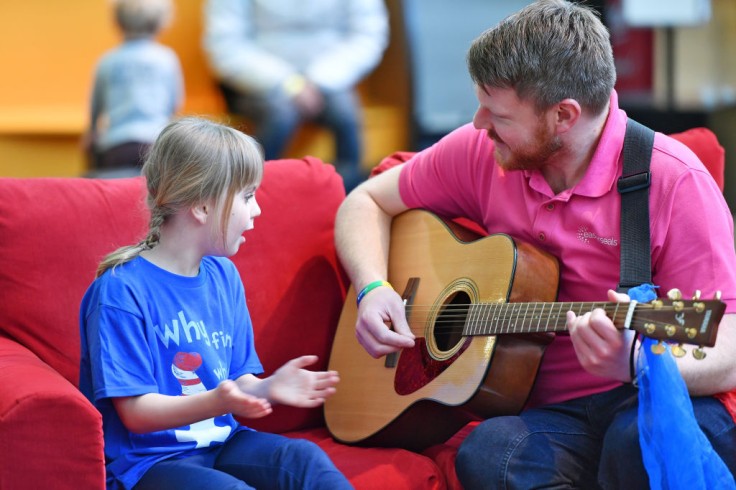
Detecting the early signs of autism in babies & toddlers could help shape how these kids live their lives in a positive way.
According to the CDC, autism spectrum disorder (ASD), a developmental disorder, is characterized by brain differences that cause difficulties in social communication and interaction, as well as restricted or repetitive behaviors and interests.
For individuals with ASD, these characteristics can significantly impact their quality of life, making everyday tasks and social interactions a challenge.
The condition usually develops in early childhood, with the first signs often appearing before a child's second birthday. However, parents can now observe these signs as early as 6 months of age.
Early Signs of Autism in Babies & Toddlers
According to Autisma Org., signs of autism in infants between 6 months and 1 year old may already start to manifest in a variety of ways.
These include reacting differently to new faces, not smiling in social situations, not responding to their name, showing no reaction to loud noises, overreacting to certain sounds, showing little interest in interactive games, not liking to be touched, and many more.
Furthermore, here are a few of the most common signs of autism that can be observed in babies and toddlers.
1. Difficulty in maintaining eye contact
One of the earliest signs of autism is a lack of eye contact. According to Healthline, babies usually start making eye contact with caregivers by the age of two months.
But babies with autism may avoid eye contact and not respond when called by their name.
This is because social communication and interaction skills can be challenging for people with ASD.
Examples of social communication and social interaction characteristics related to ASD can include avoiding eye contact or not being able to maintain eye contact.
They may also seem to be in their own world, not interested in interacting with others.
2. Difficulty with social interaction
Typically, infants at 6 months of age demonstrate recognition of their name when spoken by their mother. However, infants with autism spectrum disorder (ASD) often exhibit a developmental difference.
By the age of 9 months, many of these infants do not respond to their own name, with a pattern of nonresponse being the norm rather than a one-time occurrence.
In addition to this limited response, children with ASD may experience difficulty with social interaction.
They may struggle to engage with other children, have difficulty interpreting social cues such as facial expressions, body language, or gestures, and find it challenging to make friends, share toys, or take turns.
3. Speech issues
Children with autism often experience speech and language delays. They may not babble or coo as much as other babies of the same age.
Toddlers may not develop meaningful phrases by 18 months or two-word phrases by 24 months. Some may develop language skills but then regress and lose the ability to communicate verbally.
4. Sensory Issues
According to Raising Children, many children with autism have sensory issues, either being hypersensitive or hyposensitive to stimuli. Hypersensitivity can cause children to become overwhelmed by sensory input, such as loud noises or bright lights. Hyposensitivity can cause children to seek out sensory stimulation, such as spinning or jumping.
5. Repetitive Behaviors
According to the American Psychiatric Association, children with autism often engage in repetitive behaviors, such as flapping their hands, rocking back and forth, or spinning objects.
They may also develop routines and insist on following them rigidly. For instance, they may eat the same food every day or become upset if their schedule is disrupted.
Treating Autism
The American Psychiatric Association states that the treatment for autism varies for each individual but can involve speech and language therapy, social skills training, special education services, occupational therapy, and medication.
Over the years, many parents and caregivers have attempted various complementary and alternative interventions that involve specialized diets and supplements to improve the functioning of their children with autism.
Additionally, according to the Verywell Family, an early diagnosis of autism can provide timely access to intervention, particularly during infancy and toddlerhood, a period of significant brain development.
Addressing developmental delays and challenges during this critical phase can lead to greater progress than at other stages of life.
Furthermore, early intervention enables guardians and family members to gain knowledge about autism and neurodiversity, facilitating a more respectful, supportive, and empowering caregiving approach that advocates for the child.
Related Article: Helicopter Parenting: Why It May Not Lead to Success